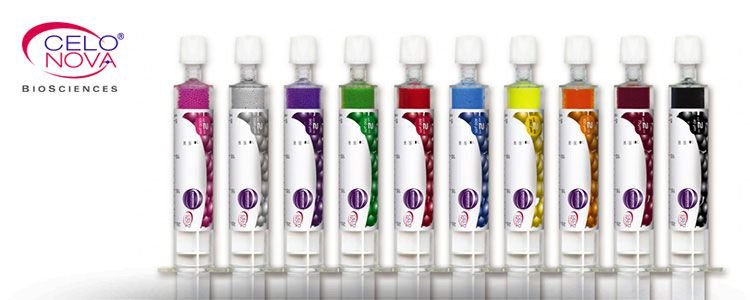
Polyzene-F Makes the Difference
“I believe Polyzene-F will continue to play an important role in delivering safety and efficacy in clinical practice.”
The Future of Medical Device Implants
Alta Biomed develops and manufactures novel surface coated technologies including its proprietary Polyzene-F nanocoating and COBRA SG Drug-Coated PTCA Balloon technology. This next-generation innovation is transforming clinical practice and promoting positive outcomes in patients around the world.
Polyzene-F™ NanoCoating A Legacy of Safety
Now, for the first time ever, medical device manufacturers seeking to optimize implant interaction within the body can partner with Alta Biomed to apply the revolutionary PzF nanocoating to their technology.
Our revolutionary drug-free polymer, Polyzene-F (PzF), is imparted with the following unique properties observed in pre-clinical studies:
Anti-thrombogenic
Anti-inflammatory
Rapid & complete healing*1-5
Applications:
Vascular Implants (e.g., peripheral and coronary stents, neurovascular implants, vena cava filters)
Microspheres
Structural Heart
Surgical Meshes
PICCs
LVADs
Can load and elute drugs
Anti-stick coating
Material Compatibility:
Metal/metal oxide
Nitinol
Cobalt-Chromium
Stainless Steel
Titanium
Magnesium
Polymers/Textiles
Powerful Passivation & Pro-Healing* Technology
Polyzene-F™ (“PzF”) is a nano-thin biomimetic surface coating that acts as a barrier between the device, intimal surface and circulating elements in the blood.
Thrombo-Resistance
Fewer platelets adhere to PzF Nanocoating1-3,6
Anti-Inflammatory
Significantly Lower Vessel Injury with COBRA PzF Stent 1-5
Less Inflammation, Neointimal thickness, area, and struts with granuloma.
“Polyzene-F has the potential to significantly limit a wide range of implant complications.”
History of Commercial Success
Cardiology - COBRA PzF NanoCoated Coronary Stent (NCS)
PzF nanocoated, non drug-eluting coronary stent allows physicians to safely and effectively treat patients with short 1-month DAPT.1
Oncology/Radiology - Embozene™ Microspheres
PzF nanocoated spheres are designed to be virtually “invisible” to the body, reducing inflammation and unwanted tissue reaction.
Acquired by Boston Scientific in 2015. Read Press Release.
Oncology/Drug Elution - Tandem™ Microspheres
PzF nanocoated spheres are designed to be virtually “invisible” to the body, reducing inflammation and unwanted tissue reaction.
Acquired by Boston Scientific in 2015. Read Press Release.
On-Demand Webinars
Understanding the Science Behind COBRA PzF NCS: A New Category of Stent
Cardiac Injury and PCI in the Era of COVID-19
* AS DEMONSTRATED IN PRECLINICAL STUDIES.
Correlation between bench testing, animal studies and humans have not been determined.
Koppara T, Sakakura K, Pacheco E, et al. Preclinical evaluation of a novel polyphosphazene surface modified stent. International Journal of Cardiology. 2016; 222:217-225.
Mrowietz C, Franke R, Seyfert U, et al. Haemocompatibility of polymer-coated stainless steel stents as compared to uncoated stents. Clinical Hemorheology and Microcirculation. 2005; 32:89–103.
Richter G, Stampfl U, Stampfl S, et al. A New Polymer Concept for Coating of Vascular Stents Using PTFEP (poly(bis(trifluoroethoxy)phosphazene) to Reduce Thrombogenicity and Late In-Stent Stenosis. Investigative Radiology. 2005; 40(4):210-218.
Radeleff B, Thierjung H, Stampfl U, et al. Restenosis of the CYPER-Select, TAXUS-Express, and Polyzene-F NanoCoated Cobalt-Chromium Stents in the Minipig Coronary Artery Model. Cardiovasc Intervent Radiol. 2007
Jinnouchi, H, Mori H, et al. Thromboresistance and Functional Healing in the COBRA PzF Stent versus Competitor DES: Implications for Dual Anti-Platelet Therapy. EuroIntervention. 2018 Oct. Online ahead of print.







